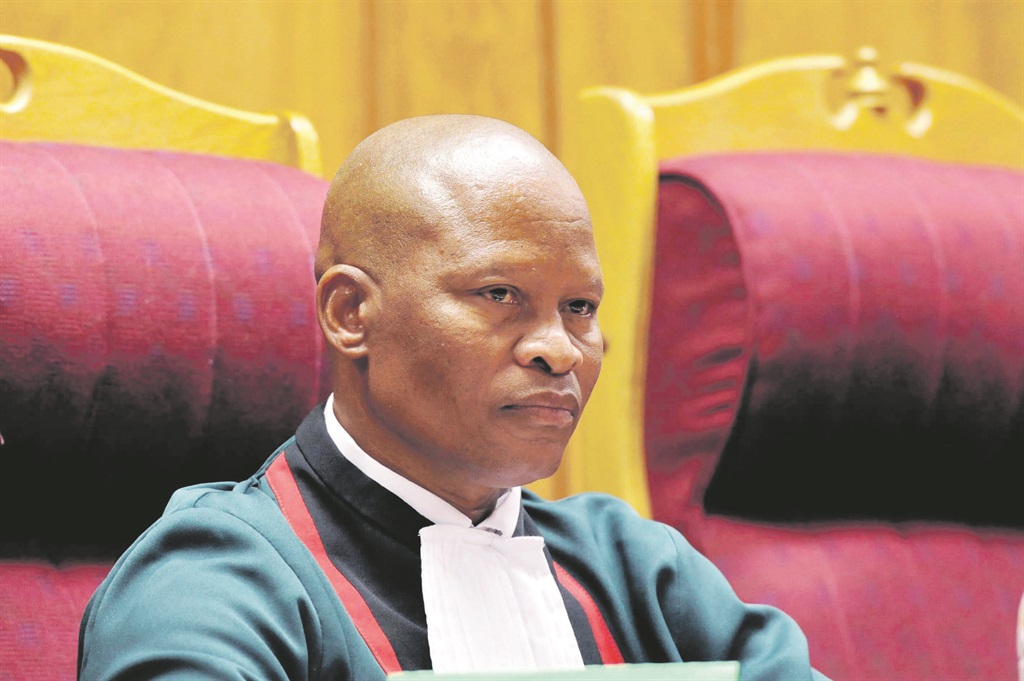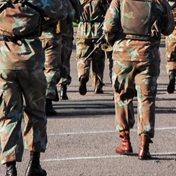
This lowly newspaperman may have told this story on these pages before, but it is certainly worth repeating in this historic week.
About a year after becoming South Africa’s top judicial officer, Chief Justice Mogoeng Mogoeng addressed the AGM of the SA National Editors’ Forum. Given the media coverage that had depicted him as lightweight and out of touch when he was initially nominated, we girded ourselves for some fisticuffs. The room was still as he relived the hard time that the media, civil society and other players had given him. The questioning of his fitness for judicial office had even forced the Judicial Service Commission to subject him to a public interview, the first time a chief justice candidate had had to endure this.
“What you put me through, I do not wish on anyone else. But thank you for making me a better chief justice,” he said, surprisingly expressing a heartfelt appreciation for the rough ride.
The grilling of Mogoeng was inevitable. A relative unknown, he was following in the footsteps of giants: oven-baked luminaries Arthur Chaskalson and Pius Langa, and internationally renowned jurist Sandile Ngcobo. These justices, and the men and women who had served with them, had built a solid Constitutional Court.
The question South Africans were asking was, would the house stand when Mogoeng took over?
But Mogoeng took to the job like a duck to water.
Even before this past Thursday, Mogoeng had proven his mettle in the leadership of the judiciary, prioritising access to justice and standing firm in the face of political interference and intimidation.
Mogoeng and the other justices proved the wisdom of the republic’s founding fathers and mothers who made institutions the backbone of our constitutional order. The institutions, be they state organs or the chapter 9 institutions supporting democracy, have been painstakingly built up since 1994, and they were meant to be the pride of our republic.
The wise men and women who foresaw a South Africa that would one day not be ruled by visionaries and upstanding individuals told us that the democracy supporting institutions would be “independent, and subject only to the Constitution and the law”, and would be impartial and “exercise their powers and perform their functions without fear, favour or prejudice”.
The Constitution they wrote obliged other organs of state to “assist and protect” these institutions and ensure their “independence, impartiality, dignity and effectiveness”.
Other countries in transition and even mature democracies studied this model of an institution-strong democracy, a model that was cooked and perfected in this land of dreamers and believers.
Those tasked with leading the institutions came from the A-team of the anti-apartheid legal world and aligned professions.
The country’s leaders treasured this special quality and showed respect for the institutions.
But then former president Thabo Mbeki opened the door to attacks on institutions when he tried to bully then National Director of Public Prosecutions Vusi Pikoli to go softly on the corruption investigation into then police commissioner Jackie Selebi. The institution withstood the heavy hand of Mbeki and the prosecution went ahead and secured an important conviction.
Then along came Jacob Zuma, to whom constitutionalism was as alien as humans on Pluto. With criminal charges hanging over his head and his insatiable greed forcing him into more questionable behaviour, Zuma proceeded to pummel anything that stood in the way of his impunity. From the judiciary to the Public Protector and law enforcement agencies, no institution was safe from the Zuma sledgehammer.
Before Public Protector Thuli Madonsela came along, the judiciary and the National Prosecuting Authority’s Scorpions were the prime enemies. The Scorpions were easy to deal with as they had been set up by legislation, but the judiciary was beyond reach as it had the steel-hard protection of the Constitution.
Nevertheless, this did not stop Zuma and his mandarins from launching missile attacks on the judiciary, which had made adverse findings against Zuma in his many attempts to evade prosecution.
The courts – in particular the Constitutional Court – were labelled as being counter-revolutionary and endured vicious attacks at the hands of the Zuma brigade. At some point, hundreds of schoolchildren were bussed to the Constitutional Court to protest against the judges in defence of Zuma.
The leadership of the ANC-led tripartite alliance led this assault on the judiciary and showed disdain for the institution. I remember during one state of the nation address how three heavyweight leaders of the alliance remained seated while the rest of the house rose to acknowledge the dignified entrance of the leadership of the judiciary, one of the solemn rituals of the occasion.
All three leaders are now on the wrong side of Zuma. One has been turfed out into the cold, and Zuma is sharpening his panga to chop off the heads of the other two.
On Thursday, they must have looked back and thought of the folly of disrespecting one of the key institutions that today stands between our constitutional order and descent into a tinpot dictatorship.
This week, the judges rebaptised us in constitutionalism. They reminded us why we chose the path we chose and why we should remain on it. They painted a picture of our original aspirations and how keeping us on the path to those aspirations should not be a burden, but a practical, noble challenge.
On Friday night, the person the judges described as a “constitutional being” and who has “the highest calling in the land” stood before the nation to demonstrate just how much we are in danger of departing from those aspirations. In his dry, monotonous and unbelievable tone, he told us to take our aspirations and shove them where the sun don’t shine.
How can South Africans best defend institutions against attacks and abuse by the powerful?
SMS us on 35697 using the keyword ABUSE and tell us what you think. SMSes cost R1.50




 Publications
Publications
 Partners
Partners








